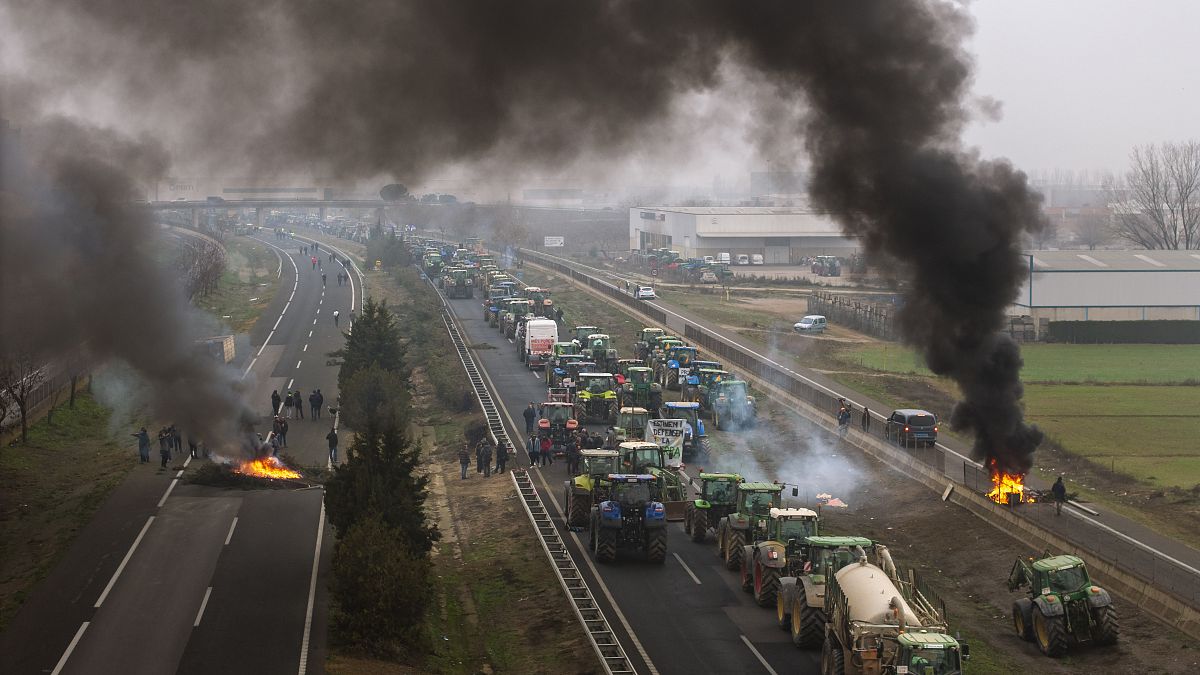There have been protests by farmers in countries such as France, Poland and Greece over the issue.
Thousands of farmers in Spain staged a second day of tractor demonstrations across the country on Wednesday.
Mirroring protests across Europe, the farmers are demanding changes in EU farming policies and measures to combat production cost hikes and severe drought.
The protests led to several main national highways being blocked. Access to the eastern port of Castellon and the southeastern Jerez airport were also temporarily cut off.
1,000 tractors were also reported to have been heading slowly towards Barcelona's city centre, causing major traffic jams in the Catalonian capital.
The protests, involving several thousand people on tractors and in other vehicles, have not been backed by Spain´s three main farming organisations, which have called for separate protests in the coming days. Several media reports have linked many of the protests to conservative groups.
The demonstrations are expected to continue over the coming weeks, with a major protest in Madrid planned for 21 February.
Speaking in Spain's parliament on Wednesday, Prime Minister Pedro Sánchez pledged to help farmers and take their case to Europe.
The Agriculture Ministry on Tuesday announced about €270 million in aid to 140,000 farmers to compensate for Spain's severe drought and problems caused by Russia’s war against Ukraine.
Agriculture Minister Luis Planas Puchades met with farmers’ unions on Friday, but failed to persuade them to halt the protests.
EU concessions to farmers
There have been other protests in countries such as France, Poland and Greece in recent days. The European Commission, the EU's executive branch, has already made concessions to farmers over the last few weeks on environmental and aid rules, and this week decided to shelve plans to halve the use of pesticides and other dangerous products.
Foreign Minister Hadja Lahbib of Belgium, which currently holds the EU's rotating presidency, said Wednesday that the rules governing farming “need to be reassessed in the light of current realities”.
European Commission Vice President Maroš Šefčovič said that “resource scarcity, price shocks and an increasingly competitive global market are having a huge impact on the farming sector and rural communities.
“We have seen from the farmers protesting on the streets of Europe that many of them feel trapped, that their needs are not being met. So, we must act,” he added.
Inaction, though, would likely please many of the protesting farmers as it might delay current EU plans that call for costly bureaucratic changes and the approval of international free trade deals that would bring cheap farm produce onto European markets.
